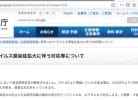Sushi is big business in Japan, of course, and two major rivals on the conveyor belt sushi market are the Kappa Sushi and Hama Zushi (Sushi) chains. Recently, these two restaurants came into the news as a former executive from Hama, who moved to Kappa, is suspected of divulging Hama’s trade secrets.[1]
Kappa Sushi’s group company Kappa Create hired Tanabe Koki, who was an executive for rival Hama’s group company Zensho Holdings until late 2020. Tanabe is accused of having a subordinate copy and forward secret documents on purchase prices, and then sharing the documents within Kappa Create in order to compare information and improve strategy. Other heads in Kappa Sushi have also been arrested, as well.[2]
The issue of trade secrets, as Japan becomes more accustomed than in the past to job changes and headhunting, brings mind questions of how a trade secret is defined and treated in Japanese business law.
How is a Trade Secret Defined in Japan?
Japan’s Unfair Competition Prevention Act (UCPA, 不正競争防止法) deals with theft and abuse of trade secrets (営業秘密). Lawyer Sato Takayuki describes the elements of a “trade secret” as protected under the law: it needs to be information (1) kept secret for production, sales or other purposes, (2) profitable to an enterprise that has it, and (3) not public knowledge.[2]
This is similar to the USPTO’s standards in the United States of America, as stated on the USPTO website:
A trade secret:
– is information that has either actual or potential independent economic value by virtue of not being generally known,
– has value to others who cannot legitimately obtain the information, and
– is subject to reasonable efforts to maintain its secrecy.[3]
When something is a “trade secret” as per Japanese practice, then the UCPA’s Article 2 Paragraph 6 describes a trade secret crime:
the act of using or disclosing trade secrets, after having acquired those trade secrets and learning that there had been an intervening act of wrongful acquisition of trade secrets, or while not knowing that fact through gross negligence[4]
In other words, the one who takes, shares, or receives trade secret information knowingly or by negligence may be held accountable.
Who Might Be Charged?
An investigator cited by the press said that Tanabe ordered a subordinate to copy and forward secret information to an external database in late September 2020, and then moved to Kappa in early 2021.[5] If so, he definitely could face charges under the UCPA.
Kappa Create’s defense, along with the new president’s apology, is denial (1) that it sought or expected Tanabe to bring that information with him when he transferred to Kappa, and (2) that it acted on the information to develop new products or change buying sources.[5] Thus it distances itself from Tanabe, not seeming to deny that he did give them information, only that they abused it in such a way as to infringe on the UPCA. Yet did it “use” the trade secrets? The courts will probably still need to weigh the evidence.
If other relatively recent examples of trade secret theft in Japan are representative, then it is possible for Hama Zushi or Zensho to sue Tanabe and Kappa Create.[2]
So What?
Japan’s increasingly westernized business culture, with more headhunting and job changes in a “salary-man” (or woman) career, means more intellectual property, including trade secrets, is at risk of leakage if former employees do not take trade secret law or corporate policies seriously. Other relatively recent examples bear out this fact.[2]
Foreign as well as Japanese employees of companies in Japan should know what qualifies as trade secret information and treat it with great care and integrity.
If you have questions about protecting–or avoiding infringing on–trade secrets in Japan, feel free to ask your Japanese IP attorney.
* The information provided on this website is for informational purposes only and is not intended as legal advice.
** For questions or consultation, please contact us for more information.
Contact: Taro Yaguchi
Sources
[1] Yomiuri Shimbun online. “「はま寿司」の営業秘密を社内で共有・比較…「かっぱ寿司」運営会社を書類送検 [Police send papers from Kappa Sushi’s managing company to prosecutor {on suspicions of} sharing and comparing trade secrets from Hama Zushi]” https://www.yomiuri.co.jp/national/20221002-OYT1T50060/ October 2, 2022. Accessed October 15, 2022.
[2] SATO, Takayuki. “営業秘密を不正取得「かっぱ寿司」元社長、今後の責任追及どうなる? はま寿司から賠償請求される可能性も [Former Kappa Sushi president illicitly acquired trade secret; for what will he be charged? Hama Zushi might sue for damages].” https://www.bengo4.com/c_18/n_15110/ Bengo4.com, Inc. October 14, 2022. Accessed October 15, 2022.
[3] United States Patent and Trademark Office. “Trade secrets / regulatory data protection” https://www.uspto.gov/ip-policy/trade-secret-policy
[4] Japanese Law Translation. ” 不正競争防止法(平成五年法律第四十七号)Unfair Competition Prevention Act(Act No. 47 of 1993).” Article 2-6. https://www.japaneselawtranslation.go.jp/en/laws/view/3629#je_ch1at2 Accessed October 17, 2022.
[5] The Daily Yomiuri. “持ち込まれたデータで「新商品開発や仕入れ先変更ない」…「かっぱ寿司」運営会社が陳謝 [Kappa Sushi parent company apologizes and says the data brought to it ‘did not lead to new product development or changes of buying sources’].” https://www.yomiuri.co.jp/economy/20221003-OYT1T50214/
Header image by Pexels from Pixabay






